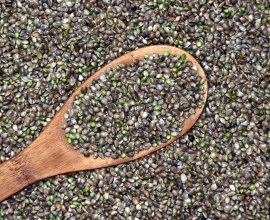In every toddler's life there comes a time when he has to face the water. Waiting too long to get your toddler used to the elements can have negative consequences in the form of fear of water or difficulty in learning to swim, which is extremely important and can often be useful in every toddler's life. That is why it is worthwhile to get your child used to water from infancy, so that it will be natural for him and he will be happy to come back to it, learning to swim and willingly participating in various water games.
First games in the water - how to prepare yourself?
Before you decide to play with your child in the water, it is worth learning how to properly take care of your child's safety. Many parents choose to have their baby in groups with other parents and their little ones, led by an experienced instructor who is always available to help with technical issues and accidents. Infant swimming is becoming more and more popular and many parents decide on it, enjoying excellent results.
However, these types of activities are not among the cheapest, so some parents give up when they learn how to take care of their child while playing water. In this case, you might want to think about creating your own place for this type of entertainment. A good solution will be a children's garden pool, which will make it possible for your child to explore the incredible water world together with his or her parents without any additional costs and without moving away from home. There are many types of such accessories: from the simplest, inflatable ones with a small surface area, to the large, professional ones, where adults can also relax freely. The choice depends on the needs and financial possibilities, but what matters most for the youngest children is that they should be able to interact with water so that it becomes a natural environment for them.
The Hulahop.pl expert advises you to make sure that both the tank and the baby are properly secured before you start playing with your baby in the pool. In the case of pools that are outside all the time, make sure that they are clean. Various germs from the environment can be harmful to sensitive skin, as can strong cleaning agents, so be aware of this when taking care of the tank.
The child, on the other hand, should be adequately protected to minimise the chance of choking or melting. To ensure safety, it is advisable to buy sleeves that help to keep your child above the water surface. In many cases, special lifebuoys for the youngest children with a special insert that prevents the child from slipping out of the wheel can also be used. It is also important to ensure cleanliness, especially for the youngest children. For this purpose, it is worth considering swimming diapers. These diapers are made of waterproof material which is safe for the skin and will prevent moisture and dirt from getting into the water. It is also an effective way to prevent sand from getting into the toddler's sensitive intimate areas when playing on the beach.
What to play in the water?
Just as important as health and safety is the right choice of games to interest the little ones not only in the water itself, but also in swimming, while at the same time guiding the children's activities in such a way that play becomes as development-oriented and beneficial to the child's health as possible. In the case of toddlers, a floating toy is sufficient, which the child will reach for, trying to push away from and move in the water, naturally learning the correct movements necessary for later learning to swim.
For slightly older children there are much more possibilities. First of all, it is worth starting by learning to swim, which will certainly be motivated by a variety of accessories, such as sleeves, inflatable lifebuoys, fins, swimming boards or polystyrene pipes. The more interesting the design and colour scheme, the greater the chance that your toddler will be more likely to return to the water. Such accessories are not only meant to motivate but also to support swimming lessons in the most comprehensive way possible.
Once your child has learnt the basics, you can begin to take an interest in water activities such as water ball - which will teach them team play and improve their swimming skills, diving - which will awaken their love of nature and curiosity about the world, as well as competitive swimming, which starts with learning basic styles, and extends with time to more and more complex ones. As it is not difficult to notice, there are many possibilities, and only the basic ones have been mentioned in the article. The most important is to take care of appropriately safe play conditions and ingenuity, which in combination with children's imagination will result in surprisingly good results, which will certainly make it easier for children to continue living.
External material









